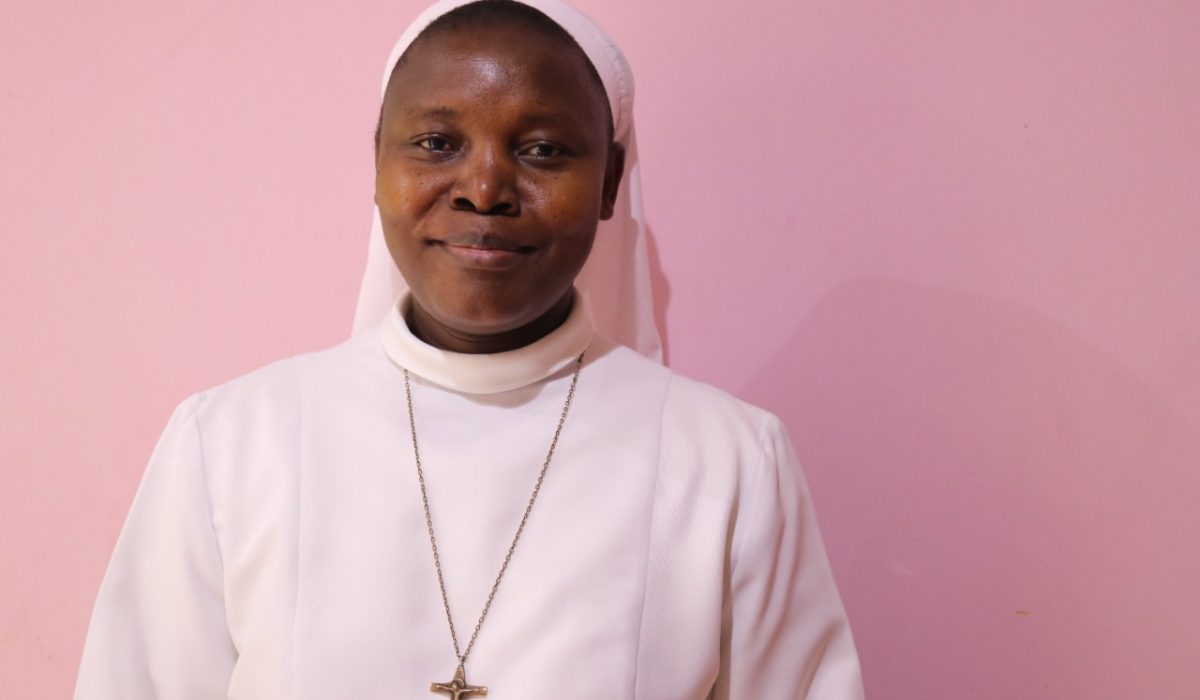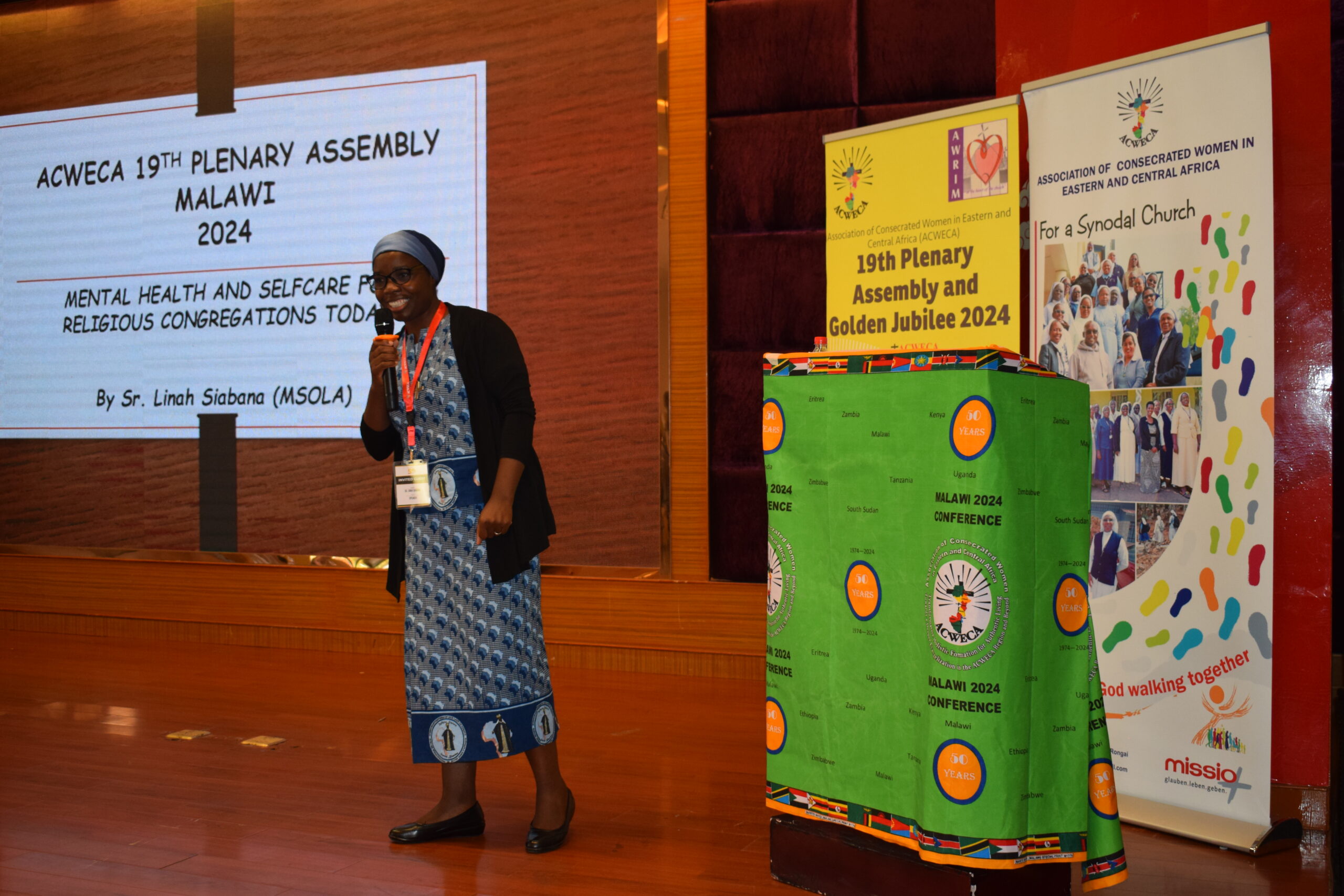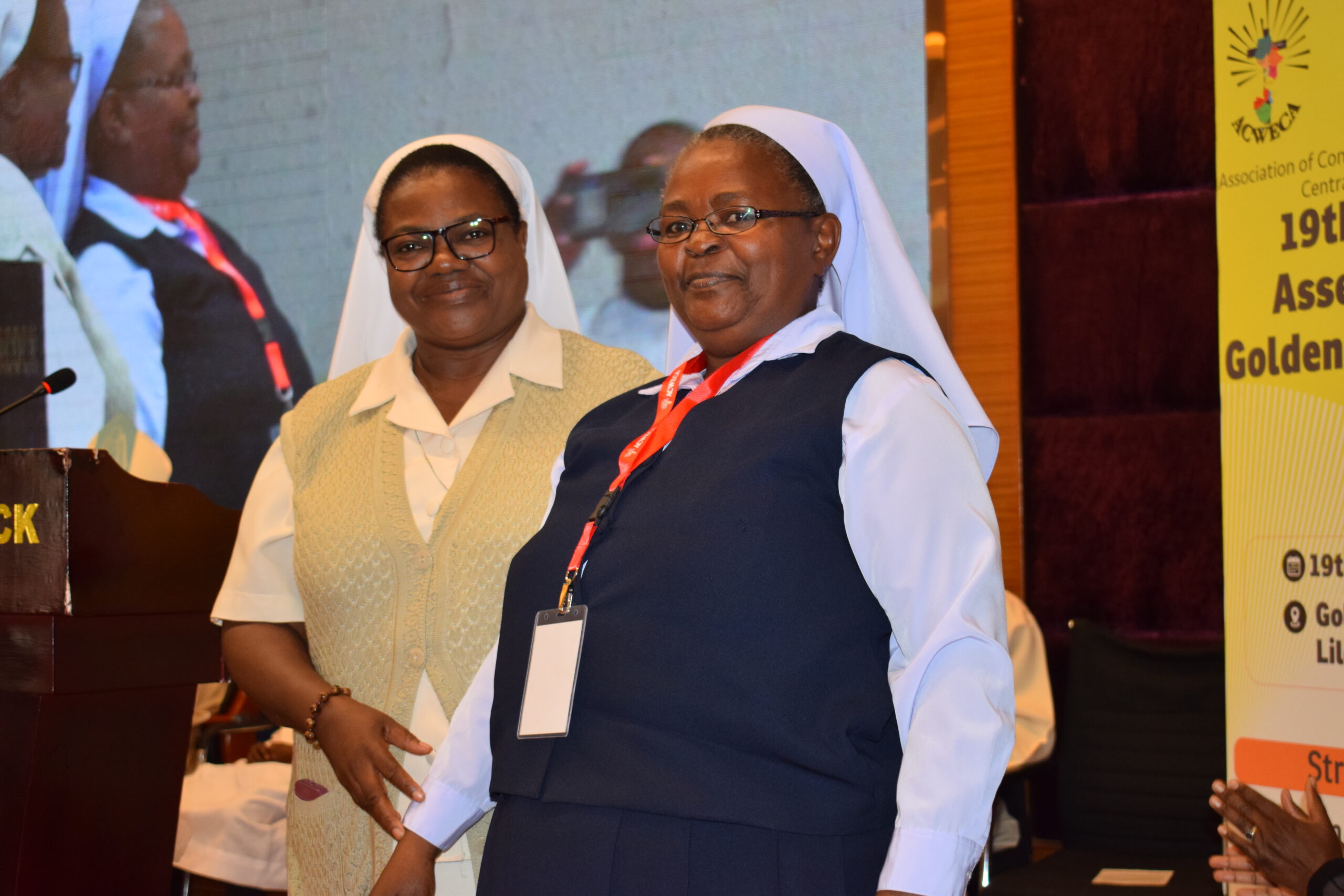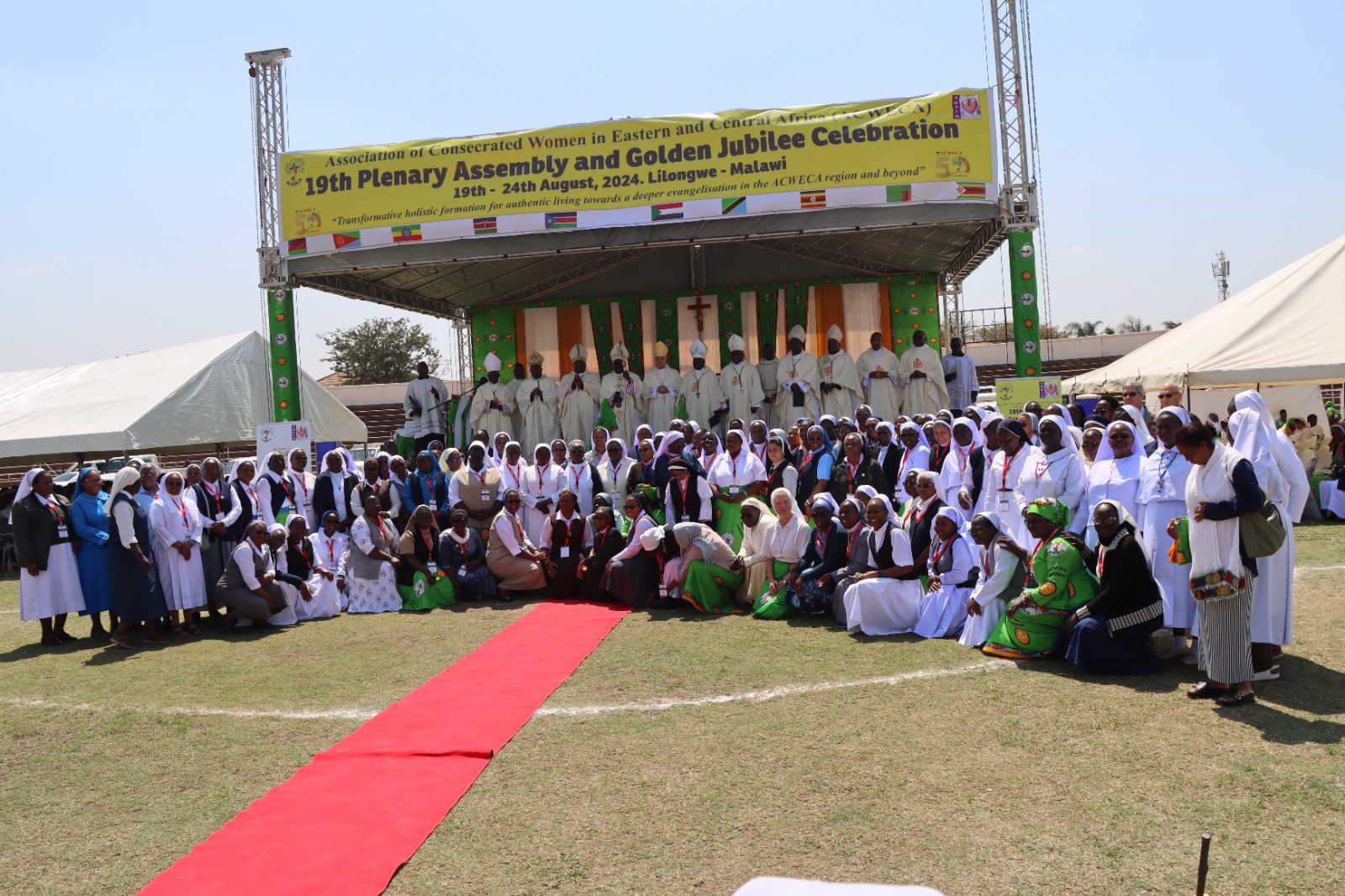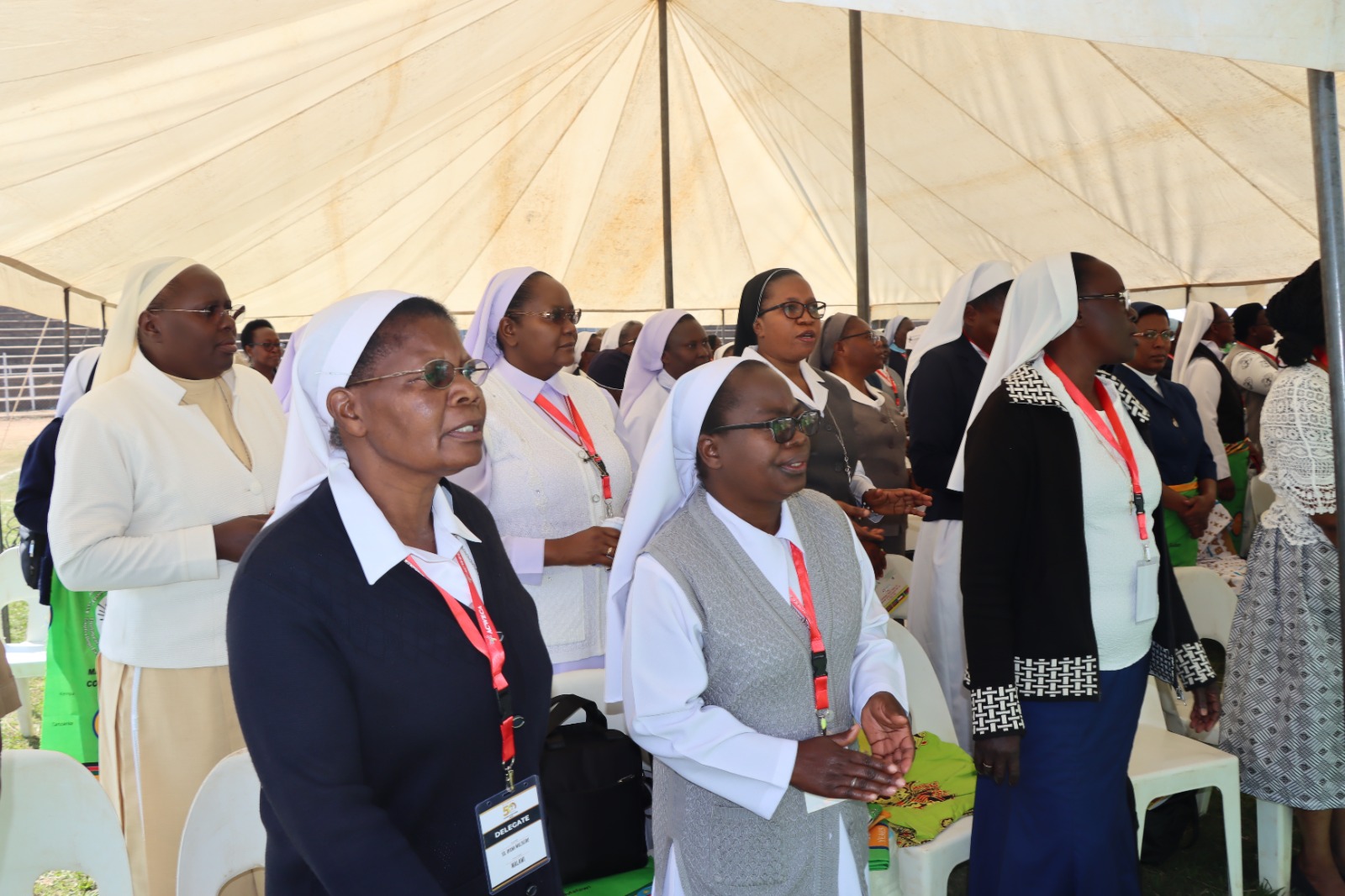Rose Achiego Ande
New Wine in New Wineskins (NWiNW) one of the latest Magisterium documents brings out a number of challenges facing formation to Religious Life today and these obscure proper discernment of vocation and sustainability of members. The document presents what Pope Francis calls problematic “patterns of thought” or “limited spiritual constructs”. This describes congregational dispositions and behaviours that do not manifest new wine but watered -down wine.
In her presentation during the 18th Association of Consecrated Women in Eastern and Central Africa (ACWECA) Plenary Assembly taking place in Nairobi Kenya under the theme “Re-awaken our prophetic Call: Call for Reformation towards Holistic Transformation in the region today”. Sr. Jacinta Auma Opondo, a member of the Franciscan Sisters of St. Anna (FSSA) in reference to The Gift of Fidelity and Joy of Perseverance (GFJP) agreed that, it is more difficult to live as a consecrated person in today’s world.
According to Sr. Auma, the struggle for fidelity and lack of strength to persevere are experiences that are part of the history of Religious and Consecrated Life since its beginning hence the need for the Religious to always keep watch and to identify what is at the root cause of the struggle at every given moment.
She adds that, today’s culture influences life choices and the very vocation to consecrated life.
“This culture causes a precarious fidelity that weakens total and permanent self-giving to the service of the Lord; and when the ‘forever’ is weak, any reason is considered valid to leave the path one has taken,” she said.
Presenting online to about 200 participants drawn from all over the world, Sr. Auma said that the abandonment of Consecrated life worries, affirming that “some leave as an act of coherence, because they recognize after serious discernment that they never had this vocation. We find quite often situations of an intermittent dedication, occasional fidelity, a selective obedience which is perhaps a symptom of a watered down and mediocre life, devoid of meaning.
She adds that sometimes, we find behavioural tendencies and occasions of scandal arising which are hurtful and raise serious questions about the formation journey. She therefore calls on all the Religious to rethink formation in order to design formation programs that are more transformative rather than merely informative.
She further encourages Religious women to follow all stages of formation by giving it a multi-dimensional approach.
“Formation is to be based on a Christian understanding of human nature; understood as, beings created in in the image and likeness of God, wounded by sin and renewed by grace, called to universal fellowship and fraternity, immersed in history and society, graced with a particular vocation that unfolds progressively in conscious and free response to the inspiration of the Holy Spirit.
Sr. Auma reiterates that formation needs to lead each candidate towards internalization and acceptance of the Institute’s charism and way of life through discernment process.
“For a formation program to realize this, it must be personal, differentiated, integral, gradual and progressive, liberating and prophetic, particularized and universally balanced,”
She advised the representatives of different Religious institutes in attendance to ensure that every formation process pays attention to the human situation and the demands of the present, to accord the same to the current attitudes of sentiment and thought prevalent in social life of the day.
“The world in any time in history offers both new hopes but also unheard-of challenges that affect formation in a significant way: new possibilities but also obstacles that can slow down or even bring to a halt the formation process, she said.”
Echoing the sentiments of Pope Francis Sr. Auma reminded the Religious that formation must be given the seriousness it deserves adding that fidelity and perseverance have been at the centre of the intervention of Pope Francis.
In his Apostolic Exhortation the Joy of the Gospel, Pope Francis calls for a transformation of customs, ways of doing things, times and schedules, language and structures which can be suitably channeled for the evangelization of today’s world rather than for self-preservation of the Institute.”

